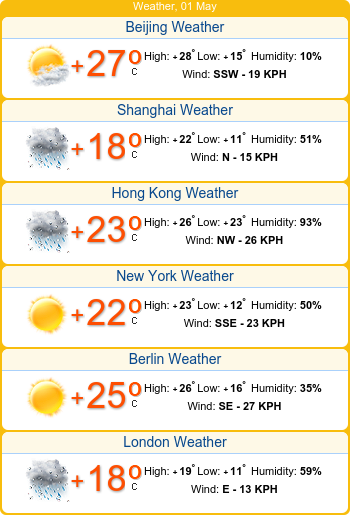A tale of two media: The media gap in Russia
A war of attrition is under way for the forests and streets of eastern Ukraine; a war of attrition is under way for the minds of Russians, as well. Russian President Vladimir Putin knows its dangers. The more Russians realize the gap between official Kremlin claims and reality, the more their support will slip. As Putin’s war is prolonged, Russians’ growing dissatisfaction may affect its course. Attuned to these dangers, Putin has flogged a distorted tale of Western aggression. His state media insist that the North Atlantic Treaty Organization’s grasp for Ukraine drove Moscow into a defensive war. Unable to trumpet victory, Putin pleads necessity. Lauding Russian heroism, he points to mighty NATO, not tiny Ukraine, to excuse battlefield reverses. To shield his lies, Putin first banned and then criminalized anti-war commentary, reporting, and protests. To uphold this façade, Putin’s spokesmen pretend Russians get unfettered news. A few months after the invasion, Valery Fedorov, head of the All-Russian Center for the Study of Public Opinion, said, “Federal television no longer has a monopoly on the minds of our audience. We have the Internet.” Fedorov also touted easy access to virtual private networks (VPNs), which protect users’ identities on the Web. In fact, more than 60% of Russians still get their news from censored state-run TV channels, and last year, Russian authorities blocked 210,000 websites. Last September, the Kremlin barred access to the most widely used VPNs, and more recently, rendered others dysfunctional on Russia’s most popular Wi-Fi providers. New Russian laws amplify the state’s repressive mechanisms. Anti-war social-media posts can entail several years in prison. Despite Kremlin efforts, independent journalists have succeeded in puncturing Putin’s carefully curated picture of the war. They dig through social-media accounts to share incidents and videos that would otherwise be suppressed by state-run newspapers and television channels. Their work reaches millions of Russians, particularly younger citizens, who still find ways to tap into social-media platforms like Telegram. So when a rally praised a Russian serviceman who selflessly “saved” 347 Ukrainian children, independent journalists on social media exposed him as a Putin-linked party member who was likely a former KGB associate abducting children at the government’s behest. When the Kremlin posthumously awarded the Order of Courage to a Russian artilleryman for a noble battlefield death near Kherson, Ukraine, journalists attributed his demise to a shootout between drunk servicemen and Federal Security Service (FSB) officers at a cafe. Social media have also enabled journalists to expose how the war has disrupted everyday civil society within Russia. For example, in February, a teacher in Russia’s Tula region reported to police a sixth-grade student who drew a picture expressing opposition to the war. FSB agents detained the girl before sending her to an orphanage. When the aggrieved father protested, he was put under house arrest. Putin’s press secretary, Dmitry Peskov, denounced students at a Moscow university for showing a Ukrainian flag at an annual celebration of Eastern European cultures. Russia’s Ministry of Education and Science has launched its own investigation of the university and the group. Social media spread these tales, as well as complaints about Russian authorities’ refusal to allow a Vladivostok family to run a DNA test on the supposed remains of a beloved service member. Telling these stories comes at a cost. Russia’s Justice Ministry recently labeled one of the country’s most influential independent journalists and bloggers, Ilya Varlamov, as a foreign agent. Olga Tsukanova, the leader of the Council of Mothers and Wives of Russian Soldiers, collects complaints from soldiers’ mothers and wives. For a time, the Kremlin tolerated her public criticism of the army, but in January she dared to criticize Putin openly for meeting with only hand-picked mothers. She was detained and accused of “discrediting the Russian army.” Beyond journalists and bloggers, ordinary Russians who hold varying opinions feel Moscow’s heel. After a September 2022 anti-mobilization protest in Moscow, RT editor-in-chief Margarita Simonyan argued that those opposing mobilization should be sent to the front, adding that “all the men who were at the rally against mobilization … were handed more than 200 summonses.” In January, State Duma Speaker Vyacheslav Volodin wrote that the state should introduce “a clause on the confiscation of property from scoundrels in the Russian Federation.” He defined “scoundrels” as those who support “villains, Nazis and murderers” by insulting the Russian Armed Forces. Such repression betrays a worried Kremlin. As Putin’s war falters, as more families learn of mass burials, Russians will increasingly perceive Putin’s lies. Mounting battlefield


A war of attrition is under way for the forests and streets of eastern Ukraine; a war of attrition is under way for the minds of Russians, as well. Russian President Vladimir Putin knows its dangers. The more Russians realize the gap between official Kremlin claims and reality, the more their support will slip. As Putin’s war is prolonged, Russians’ growing dissatisfaction may affect its course.
Attuned to these dangers, Putin has flogged a distorted tale of Western aggression. His state media insist that the North Atlantic Treaty Organization’s grasp for Ukraine drove Moscow into a defensive war.
Unable to trumpet victory, Putin pleads necessity. Lauding Russian heroism, he points to mighty NATO, not tiny Ukraine, to excuse battlefield reverses. To shield his lies, Putin first banned and then criminalized anti-war commentary, reporting, and protests.
To uphold this façade, Putin’s spokesmen pretend Russians get unfettered news. A few months after the invasion, Valery Fedorov, head of the All-Russian Center for the Study of Public Opinion, said, “Federal television no longer has a monopoly on the minds of our audience. We have the Internet.”
Fedorov also touted easy access to virtual private networks (VPNs), which protect users’ identities on the Web.
In fact, more than 60% of Russians still get their news from censored state-run TV channels, and last year, Russian authorities blocked 210,000 websites. Last September, the Kremlin barred access to the most widely used VPNs, and more recently, rendered others dysfunctional on Russia’s most popular Wi-Fi providers.
New Russian laws amplify the state’s repressive mechanisms. Anti-war social-media posts can entail several years in prison.
Despite Kremlin efforts, independent journalists have succeeded in puncturing Putin’s carefully curated picture of the war. They dig through social-media accounts to share incidents and videos that would otherwise be suppressed by state-run newspapers and television channels.
Their work reaches millions of Russians, particularly younger citizens, who still find ways to tap into social-media platforms like Telegram.
So when a rally praised a Russian serviceman who selflessly “saved” 347 Ukrainian children, independent journalists on social media exposed him as a Putin-linked party member who was likely a former KGB associate abducting children at the government’s behest.
When the Kremlin posthumously awarded the Order of Courage to a Russian artilleryman for a noble battlefield death near Kherson, Ukraine, journalists attributed his demise to a shootout between drunk servicemen and Federal Security Service (FSB) officers at a cafe.
Social media have also enabled journalists to expose how the war has disrupted everyday civil society within Russia.
For example, in February, a teacher in Russia’s Tula region reported to police a sixth-grade student who drew a picture expressing opposition to the war. FSB agents detained the girl before sending her to an orphanage. When the aggrieved father protested, he was put under house arrest.
Putin’s press secretary, Dmitry Peskov, denounced students at a Moscow university for showing a Ukrainian flag at an annual celebration of Eastern European cultures. Russia’s Ministry of Education and Science has launched its own investigation of the university and the group.
Social media spread these tales, as well as complaints about Russian authorities’ refusal to allow a Vladivostok family to run a DNA test on the supposed remains of a beloved service member.
Telling these stories comes at a cost. Russia’s Justice Ministry recently labeled one of the country’s most influential independent journalists and bloggers, Ilya Varlamov, as a foreign agent.
Olga Tsukanova, the leader of the Council of Mothers and Wives of Russian Soldiers, collects complaints from soldiers’ mothers and wives. For a time, the Kremlin tolerated her public criticism of the army, but in January she dared to criticize Putin openly for meeting with only hand-picked mothers. She was detained and accused of “discrediting the Russian army.”
Beyond journalists and bloggers, ordinary Russians who hold varying opinions feel Moscow’s heel. After a September 2022 anti-mobilization protest in Moscow, RT editor-in-chief Margarita Simonyan argued that those opposing mobilization should be sent to the front, adding that “all the men who were at the rally against mobilization … were handed more than 200 summonses.”
In January, State Duma Speaker Vyacheslav Volodin wrote that the state should introduce “a clause on the confiscation of property from scoundrels in the Russian Federation.” He defined “scoundrels” as those who support “villains, Nazis and murderers” by insulting the Russian Armed Forces.
Such repression betrays a worried Kremlin. As Putin’s war falters, as more families learn of mass burials, Russians will increasingly perceive Putin’s lies. Mounting battlefield deaths and social-media tales will carve ruts through medal ceremonies and false state media claims.
Putin, like Shakespeare’s blind old man, might take heed: The truth will out. For Putin faces not just 16th-century word-of-mouth, but 21st-century media challenges.
Democracies should actively support freedom in both wars of attrition being waged today – the one with images and words, the other with missiles and tanks. Western media should open more avenues for their independent journalists’ work to reach Russians. International broadcasters like Voice of America and websites should highlight for Russians their travails in Ukraine and at home.
However, Ukrainians too may weary without prospects of victory. To herald their cause and, crucially, speed them weapons, the West faces its own war of attrition – one against complacency, fear, and a short attention span.












